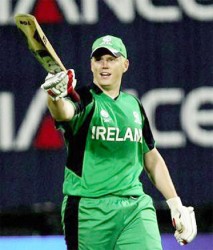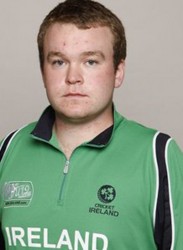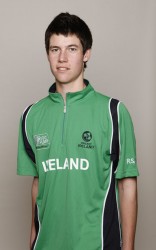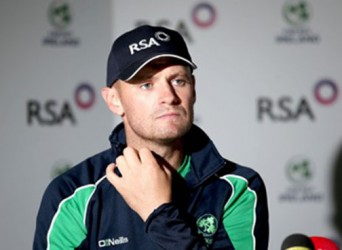As the highly anticipated 2015 Cricket World Cup (CWC) looms, keen attention will be paid on the performance of the pride and joy of the Caribbean, former two-time Cup winners, West Indies.
The Windies have so far endured a lean patch ahead of the grandest stage in cricket both on and off the field with issues ranging from young Jason Holder’s appointment to the One-day Captaincy mere months away from the tournament, Sunil Narine’ withdrawal due to his suspect bowling action, the overlooking of key all-rounders Dwayne Bravo and Kieron Pollard by the West Indies Cricket Board (WICB) selectors and the recent 4-1 thumping dished out by AB DeVilliers and his men during the South African series.
The above does not inspire confidence ahead of the Wes Indies opening match against the uncanny Ireland.
The recent strings of negativity ahead of a tournament of such magnitude has casted doubt in the minds of most cricket enthusiasts and analysts worldwide. Recently on Cricinfo, former South African Captain Graeme Smith during his World Cup analysis programme along with partner and ex-Indian skipper Rahul Dravid, weighed in with opinions that the former two-time winners are unlikely to make the quarterfinals of the tournament.
Smith was even confident that one of the minnow teams in Group B could qualify out of the Group ahead of the West Indies. However, if the ex-South African opener’s prediction is right, the honour of having a first crack at beating the WI belongs to the Irish who play them in the first match for both nations in Group B.
The potential “giant-killer” tag will certainly be attached to none other than the brass, aggressive and highly talented Irish players, who during the 2007 World Cup, opened their account with a nail-biting tie against Zimbabwe after left-hander Jeremy Bray smoked an unbeaten 115, signaling to the world that they were not be taken lightly.
That was followed up by a three-wicket Duckworth-Lewis win against Pakistan on Saint Patrick’s Day as the “Luck of the Irish” proved to be more than a fairytale. Fast-forward the clock to the 2011 World Cup held in Asia, the Irish again proved that they are more than capable of performing on the biggest stage in cricket when they handed England one of the biggest upsets which to this day is etched in World Cup history as one of the most emphatic come-from-behind wins.
The date was March 2nd when the redhead ball-beater known as Kevin O’Brien smashed his way into Cricket World Cup history books after he recorded the fastest century in the tournament’s history off just 50 balls. Ireland would go on to beat England by three wickets, making the pursuit of 329 in 49.1 overs the highest successful chase in World Cup antiquity.
Heading into the 2015 World Cup, Ireland will again look to rewrite the history books but will need to be wary of their fellow Group B big guns in; South Africa, Pakistan, India and the woeful but still dangerous West Indies.
Batting

The Irish batting line-up features 16 One Day International (ODI) centuries in total, compliments of their five top-order batsmen led by opener and skipper William Porterfield who leads the lot with six tons. Second with five is the 24 year-old Paul Stirling, Kevin O’Brien and former England opener Ed Joyce have two each, while wicket-keeper Gary Wilson has one.
Apart from international stats, the Irish players are well involved in the first-class system in England with approximately 30, 000 List A runs coming from the aforementioned players. Their opponents on the other hand seem to be in the worst limited overs form in recent times especially after the drubbing they received by century makers deVilliers, Hashim Amla, Rilee Roussow and David Miller in the recently concluded tour.
But the dismal Calypso Cricketers of the Region still have the statistical edge with a total of 33 centuries in their World Cup team. Out-of-form opener Christopher Henry Gayle accounts for 21 of those centuries while Marlon Samuels comes second on the list with seven. Wicket-keeper Denesh Ramdin (2), Darren Bravo (2) and Lendl Simmons (1) complete the list of century makers.
However, the Irish will still be upbeat about the match despite the comparison of runs especially when the pack leader Gayle has not scored a ODI century since June 2013 and averages somewhere around 18.7 since then. Other Irish batters such as Kevin’s older brother and wicket-keeper Niall O’Brien along with seasoned campaigners, Alex Cusack, John Mooney and Max Sorensen add all-round value to the side with their runs.
Bowling
While Ireland can boast about their formidable batting attack, the bowling is likely to be the loose end most teams will target, with none of their talents managing to claim 100 international scalps so far.
The big-hitting all-rounder O’Brien leads the way with 68 victims which he gathered from his military medium pace while Cusack (56), 22 year-old left-arm spinner George Dockrell (51), Mooney (41), Craig Young (16), Sorensen (12), Stuart Thompson (6) and Andrew McBrine (2) are the main bowlers who when combined account for 254 ODI wickets.
On the West Indies side, their bowling options available in the team when added together account for a staggering 748 ODI wickets, more than half the number of wickets in the Irish camp.
With the exception of Gayle who has 158 wickets but hasn’t been a consistent operator with the ball as of late, the skipper Jason Holder (37), Kemar Roach (98), Jerome Taylor (106), Darren Sammy (80), Andre Russell (53), Dwayne Smith (60), Sulieman Benn (32), Nikita Miller (40) and Marlon Samuels (82) outweigh their opponents by miles in the bowling department.
Head-to-head



Ireland and their World Cup opening match opponents West Indies have met five times in ODI cricket with the Caribbean side prevailing four out of the five times with 1 No Result. Against Pakistan they played five matches with one win, three losses and one tie.
Against defending World Cup champions India, they have met twice with the champs winning both encounters. South Africa has beaten them three times in the three matches they played, while the Irish has beaten Zimbabwe once in five encounters. They also lost one match to the African side.
The track record for the Irish against their Group B opponents clearly shows the enormous disadvantage they face heading into the tournament. With the bowling issues faced by India as well as their batsmen being showed up in the recent Tri-Series in Australia by both the host and England, Pakistan’s tendency to implode, the Caribbean sides’ poor run as of late, leaving Zimbabwe and the UAE to appear like easy pickings if caught at the right moment, giving Ireland some substance of positivity in their title pursuit.
The only threat the Irish face in Group B is the rampant South Africa who seem to be more destructive than ever, especially after dismantling the West Indies which seemed to be the ideal appetizer ahead of the World Cup.
February 16th will be the date lingering in the subconscious minds of both teams. Will the boys in Maroon prove doubters wrong and open their account with a crushing win? Or will the Irish maintain their habitual ways of disappointing recognizable teams on the big stage?





